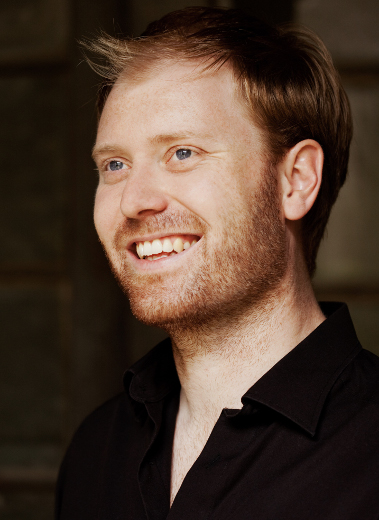Sebastian Kohlhepp rozpoczął naukę śpiewu w lokalnym chórze chłopięcym w Limburg an der Lahn. Studiował pod kierunkiem Hedwig Fassbender w Hochschule für Musik und Darstellende Kunst we Frankfurcie nad Menem.
Został zaangażowany do zespołu Opery w Karlsruhe. W sezonie 2013/14 przeniósł się do wiedeńskiej Staatsoper, gdzie śpiewał pod batutą renomowanych dyrygentów, takich jak Ádám Fischer, Peter Schneider, Jeffrey Tate czy Franz Welser-Möst. Obecnie jest członkiem zespołu Opery w Stuttgarcie, gdzie w następnym sezonie będzie kreował m.in. role Oronta (Alcina Händla), Don Ottavia (Don Giovanni Mozarta) oraz Ferranda (Così fan tutte Mozarta). Na początku 2015 r. publiczność i krytycy z entuzjazmem przyjęli jego debiut w Stuttgarcie, gdzie wystąpił jako Lucio Vero w operze Il Vologeso – Berenice, królowa Armenii Niccola Jommellego. Magazyn „Opernwelt” w plebiscycie krytyków wybrał tę inscenizację operowym odkryciem roku.
Sebastian Kohlhepp występuje gościnnie w Opéra Monte Carlo, Theater an der Wien, Volksoper w Wiedniu oraz w Teatrze Miejskim – Operze w Bazylei. Występował też w Concertgebouw w Amsterdamie, w Filharmoniach w Berlinie i Paryżu, w Tonhalle w Zurychu, Konzerthaus w Wiedniu, Shanghai Concert Hall oraz w Teatro Colón w Buenos Aires.
Artysta współpracuje regularnie z zespołami Bachakademie Stuttgart, z Collegium Vocale Gent, RIAS Kammerchor, Akademie für Alte Musik Berlin oraz Freiburger Barockorchester, wykonując repertuar muzyki dawnej, w tym oratoria.
W planach śpiewaka znajdziemy takie przedsięwzięcia, jak Pasja wg św. Jana Bacha z B’Rock Orchestra we Wrocławiu (dyr. Andreas Spering) oraz z Gürzenich-Orchester w Filharmonii w Kolonii (dyr. François-Xavier Roth), koncerty i nagrania płytowe z Oratorium na Boże Narodzenie Bacha z zespołem Gaechinger Cantorey (dyr. Hans-Christoph Rademann), a także IX Symfonia Beethovena z Orchestre des Champs-Élysées w Szanghaju (dyr. Philippe Herreweghe).
Sebastian Kohlhepp nagrał szereg płyt CD i DVD, pojawia się też w transmisjach radiowych i telewizyjnych. Najnowsza płyta z jego udziałem to Pasja wg św. Jana Bacha pod batutą René Jacobsa (Harmonia Mundi). Uczestniczy ponadto w nagraniu kompletu kantat chorałowych Bacha pod kierunkiem Christopha Speringa i z Musikforum Köln.
----------------
One of the most successful and sought-after young German tenors on the international opera and concert scene.
Most recently, he gave his acclaimed debut as Belmonte (Mozart’s Entführung aus dem Serail) at the 2018 Mozart Week in Salzburg under the baton of René Jacobs. At the Staatsoper Stuttgart he thrilled audiences and critics as Jason in Peter Konwitschny’s new production of Cherubini’s Medea. In late 2017, likewise with René Jacobs conducting, he covered the role of Tamino in Torsten Fischer’s widely acclaimed Die Zauberflöte production at the Theater an der Wien (Vienna).
Sebastian Kohlhepp was born in Limburg an der Lahn, where he received his first musical training at the local boys’ choir. After his studies with Hedwig Fassbender in Frankfurt, he became a member of the Staatstheater Karlsruhe, where he learned and performed a great number of important tenor roles. For the 2013/2014 season, he switched to the Wiener Staatsoper, where he sang roles such as Jaquino (Beethoven’s Fidelio) and Froh (Wagner’s Rheingold) under the baton of renowned conductors including Ádám Fischer, Franz Welser-Möst, Peter Schneider, Jeffrey Tate, Dan Ettinger, and Patrick Lange. From 2015 to 2017, Kohlhepp was a member of the Staatsoper Stuttgart. He achieved particular success as Lucio Vero in Niccoló Jommelli’s opera Il Vologeso (Berenice, Queen of Armenia), a production staged by Jossi Wieler and Sergio Morabito which Opernwelt magazine singled out as ‘2015 Opera Rediscovery of the Year’. Further roles covered in Stuttgart were Alfred (Die Fledermaus by J. Strauss), Ferrando (Mozart’s Così fan tutte), Oronte (Handel’s Alcina), Don Ottavio (Mozart’s Don Giovanni), and Lurcanio (Handel’s Ariodante).
Guest engagements led him to perform at the Opéra de Monte-Carlo (First Jew in Salome by R. Strauss), at the Theater an der Wien (Eurimaco in Monteverdi’s Il ritorno d’Ulisse in patria), Volksoper Wien (the title role in Britten’s Albert Herring), Basel Theater (Tamino in Die Zauberflöte), and Köln Oper (Don Ottavio in Don Giovanni).
As a concert soloist, Kohlhepp collaborates on a regular basis with ensembles such as the Akademie für Alte Musik Berlin, RIAS Chamber Choir, Freiburger Barockorchester, Collegium Vocale Gent, Gaechinger Cantorey, NDR Chor, Kammerchor Stuttgart, B’Rock Orchestra, and Collegium 1704, as well as with renowned conductors including René Jacobs, Philippe Herreweghe, Pablo Heras-Casado, Frieder Bernius, Hans-Christoph Rademann, Lars Ulrik Mortensen, Helmuth Rilling, and Andreas Spering. He has performed at outstanding venues including the Concertgebouw in Amsterdam, Berliner Philharmonie, Philharmonie de Paris, Kölner Philharmonie, Wiener Konzerthaus, Tonhalle in Zurich, Shanghai Concert Hall, Teatro Colón in Buenos Aires, and at the Rheingau Music Festival and the Passau European Weeks Festival.
In the summer of 2018, Sebastian Kohlhepp will make his Salzburg Festival debut appearance in Beethoven’s Symphony No. 9 conducted by Teodor Currentzis. He will sing the same part at the closing concert of Schleswig-Holstein Music Festival under the baton of Justus Frantz.
In late 2018, Kohlhepp will perform his US debut with the Boston Symphony under Andris Nelsons. In Hamburg he will participate for the first time in a John Neumeier Hamburg Ballet production, singing Brahms’s Liebeslieder Waltzes at the Staatsoper Hamburg.
A series of CDs, DVDs, and broadcast recordings offer further insight into Sebastian Kohlhepp’s multifarious talents. He is prominently featured in Christoph Spering’s complete recording of the Bach Chorale Cantatas, which received the coveted German ECHO Klassik Award in 2017. René Jacobs’s new recording of the St John Passion (Harmonia Mundi), in which Kohlhepp sang the tenor arias, was distinguished with the International Classical Music Award in the Baroque Vocal category that same year.

